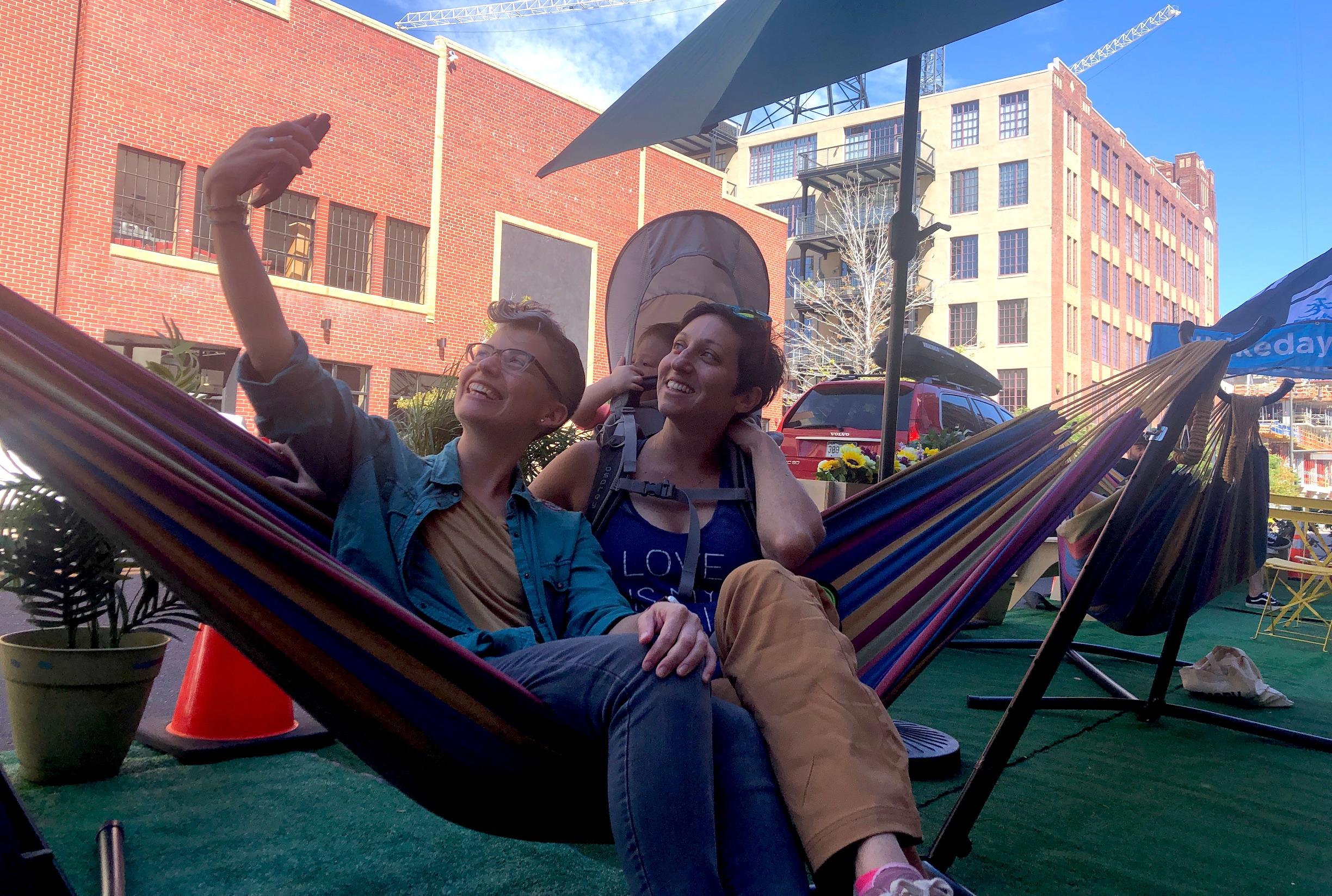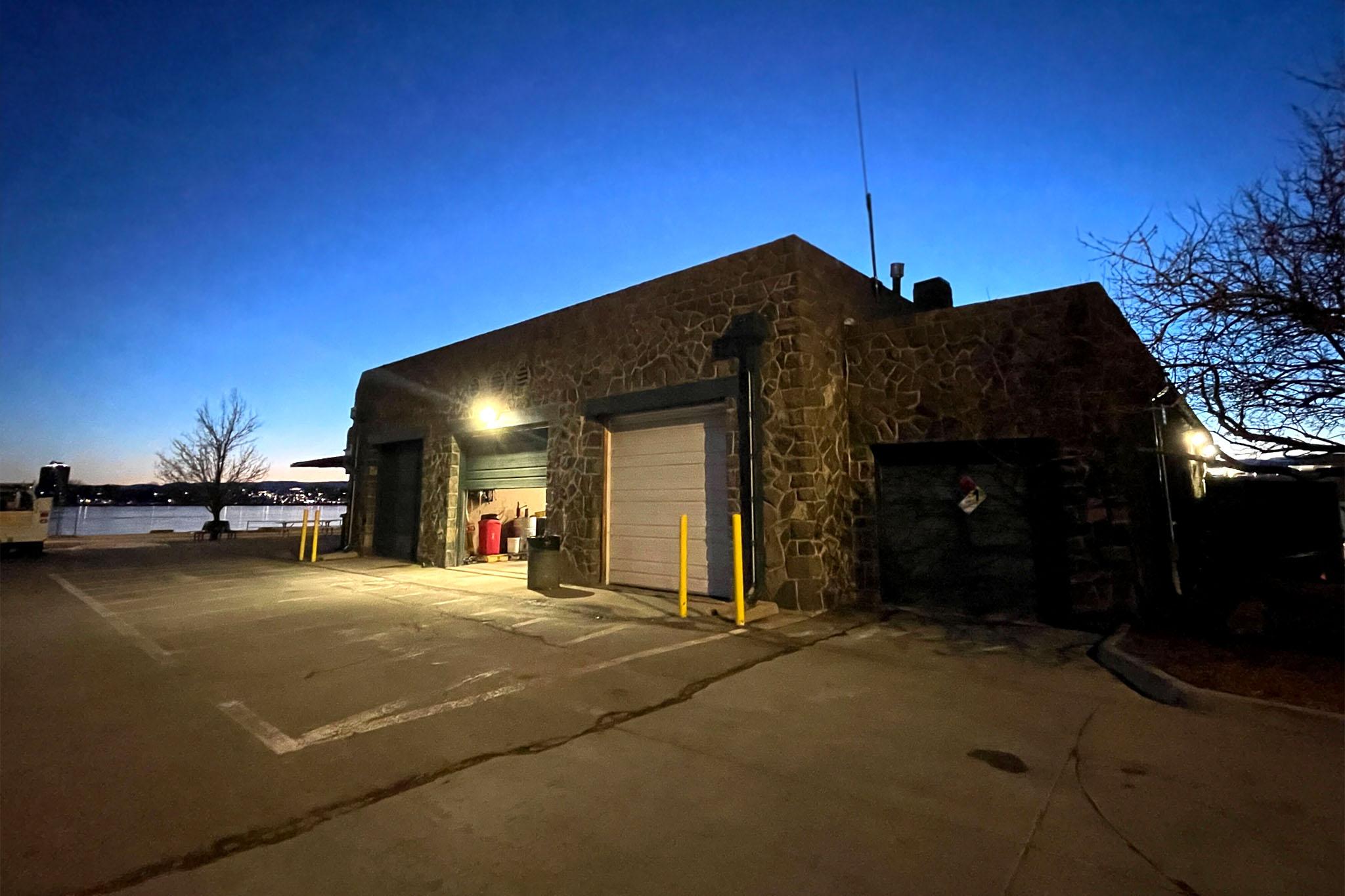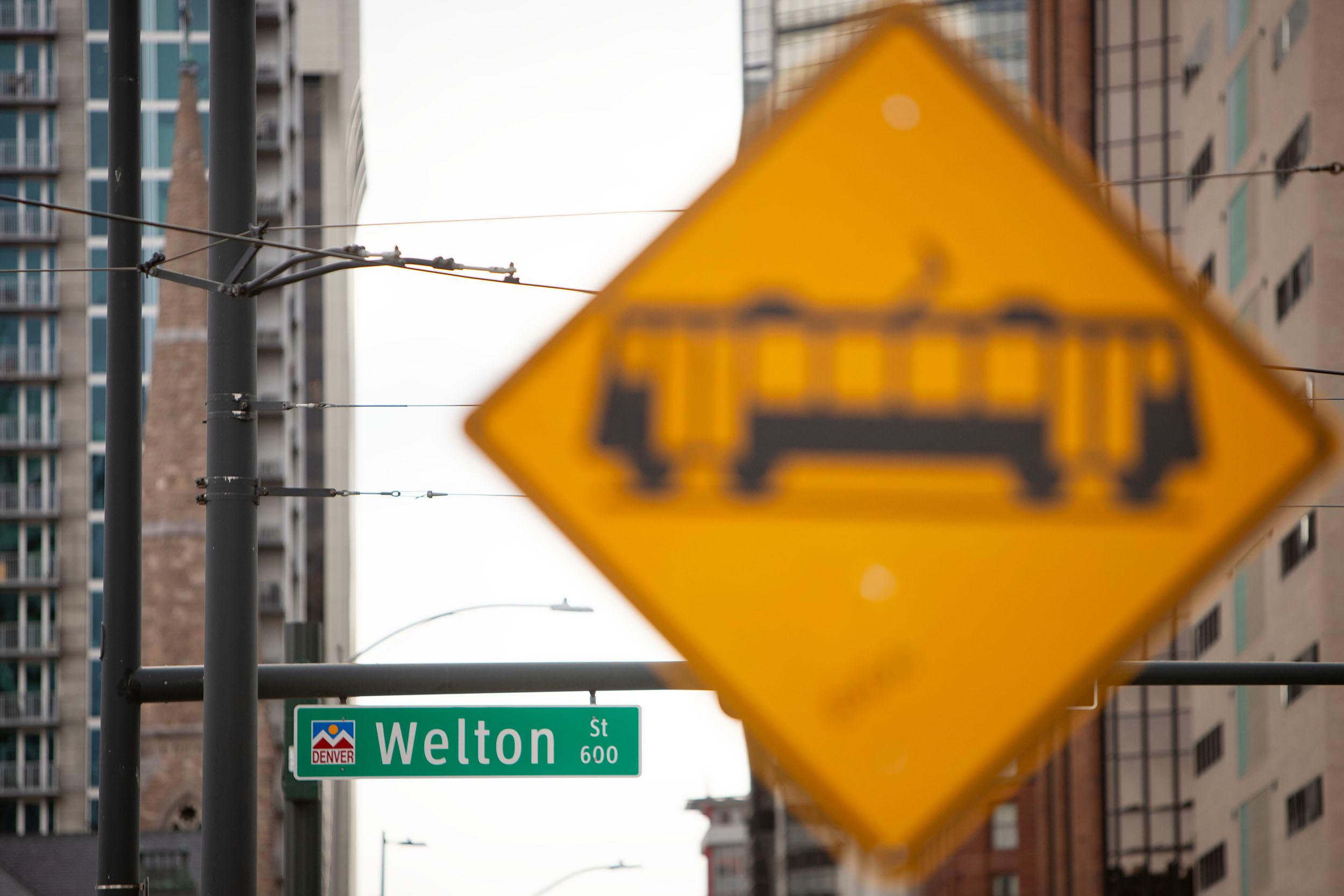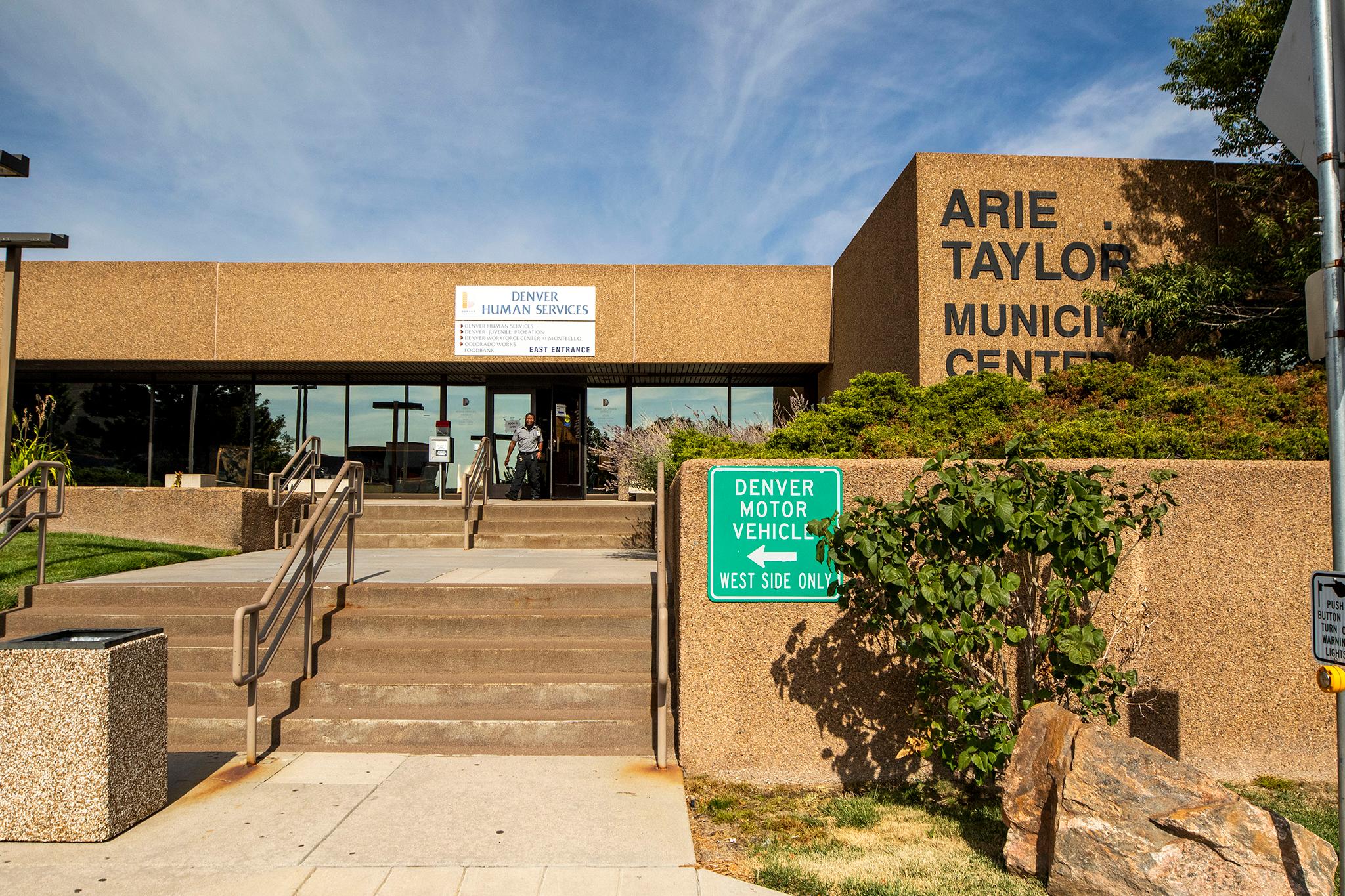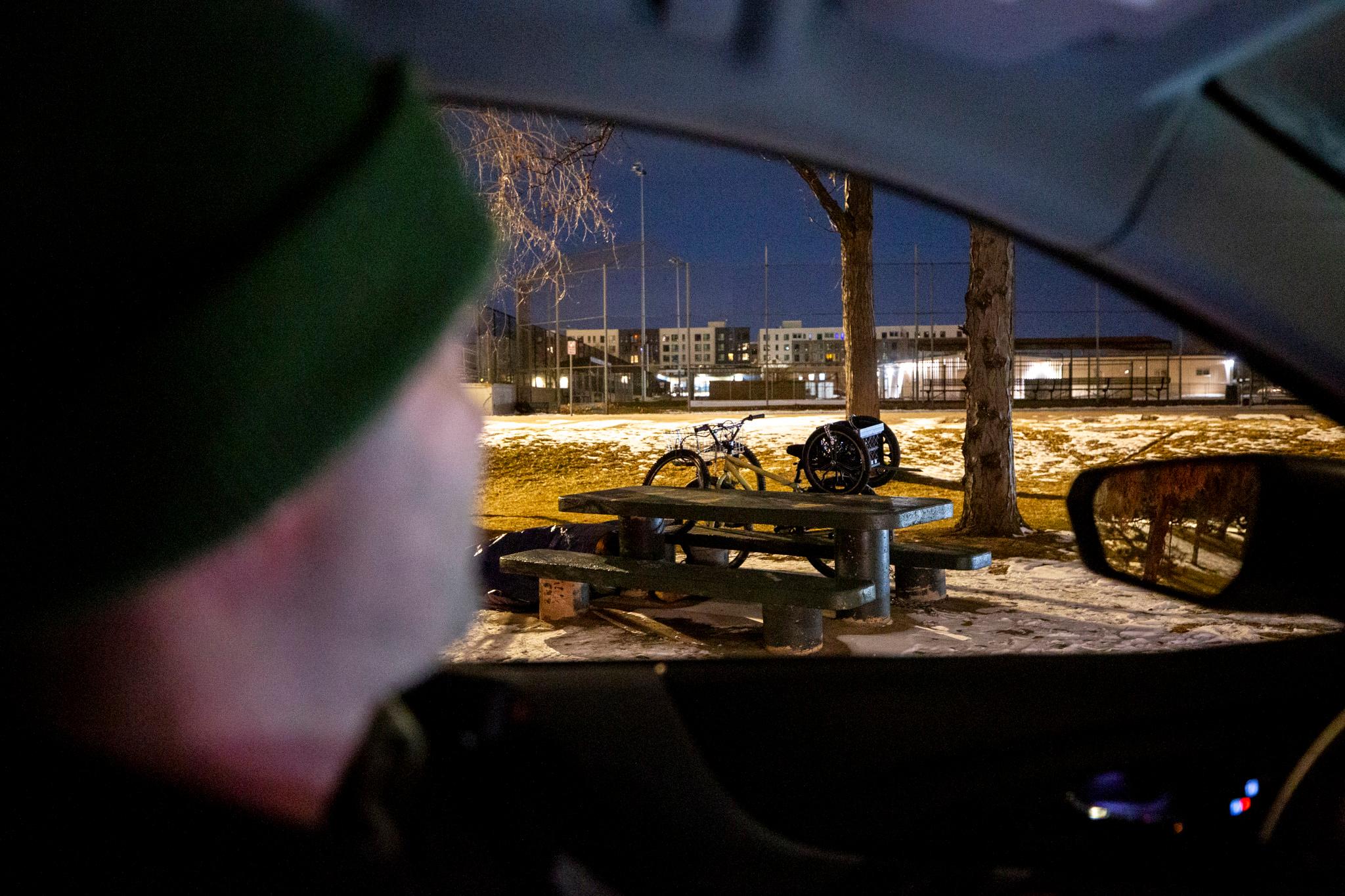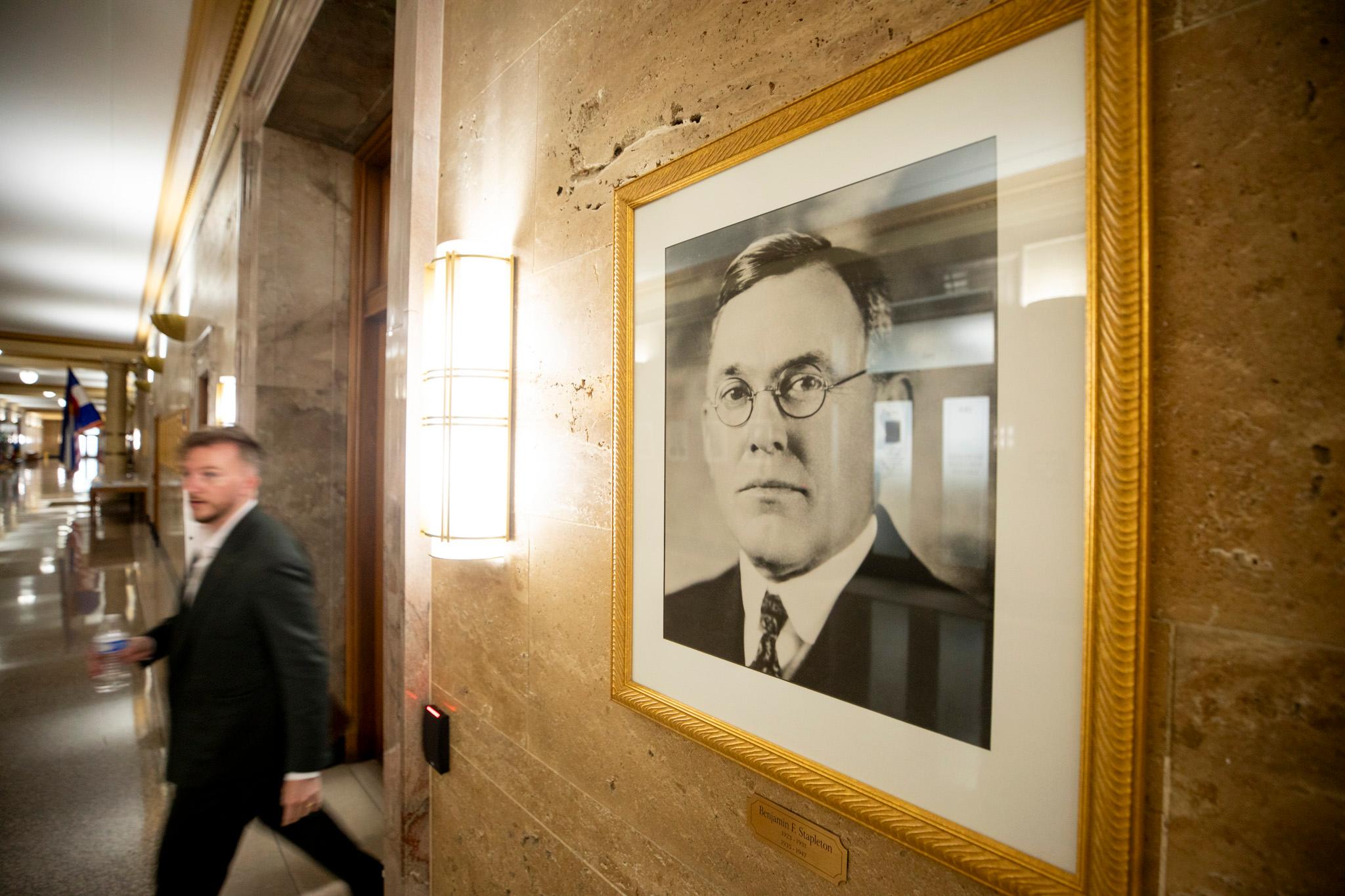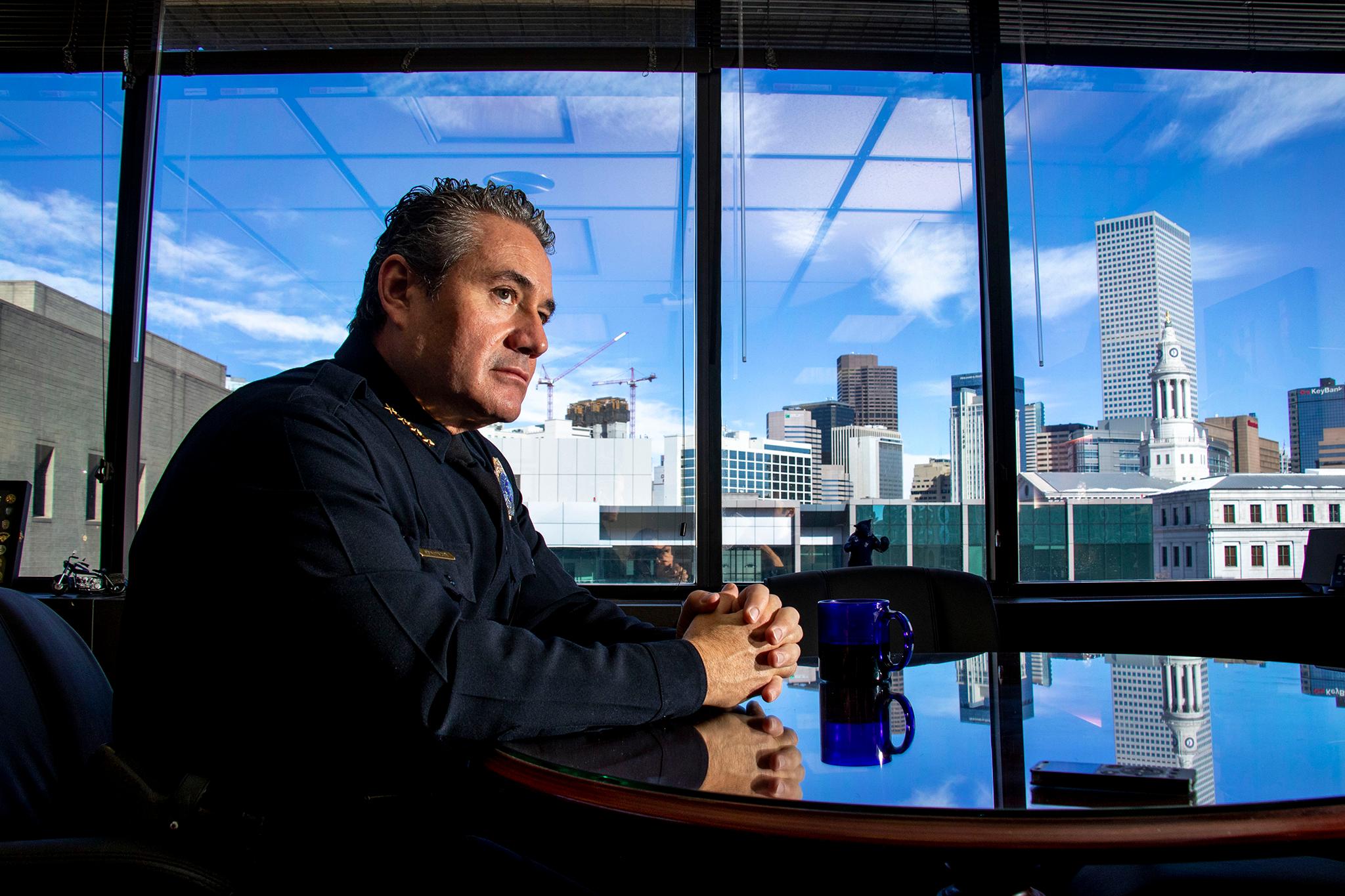Fonia Barwick and Mandy Owen lounged on a hammock near the corner of 18th and Wazee streets Friday where yesterday a two-ton machine known as an SUV sat until its owner returned and vacated the space so another vehicle could fill it.
Barwick and Owen were unwittingly participating in Park(ing) Day, a once-a-year holiday of sorts. It's like Christmas morning for anyone who wants the public realm used for shade and gathering places more than storing private property, commonly known as parking.
"It's a huge novelty," said Barwick, who lives in Highland. "We're big alternative transportation and public space advocates. So when we see stuff like this, we like to participate so that there's more of it."
This year's Park(ing) day -- named for the "parklets" or miniature parks that supplant parking spots -- was probably Denver's largest, according to transportation advocates. Denver Public Works permitted more than 30 metered parking spots for the demonstration, according to Ryan McCann, the city government's curbside specialist. The city usually doesn't participate beyond the permitting process, but Eulois Cleckley, executive director of the streets department, directed his staff to take over a few parking spots outside the Webb Municipal Building where his employees held meetings in the open air.
Another reason this year's Park(ing) Day is bigger than years past: E-scooter company Spin held a national competition for parklet prototypes and chose Denver as the city to put its finalists on display.
Brent Spraggins and John Watkins of Dallas-based TBG Partners, one of the finalists, set up their design at 16th and Glenarm streets. It's a hub with benches, shade and plants on a street that otherwise has none of those things. Their parklet has something else in high demand, too: scooter parking.
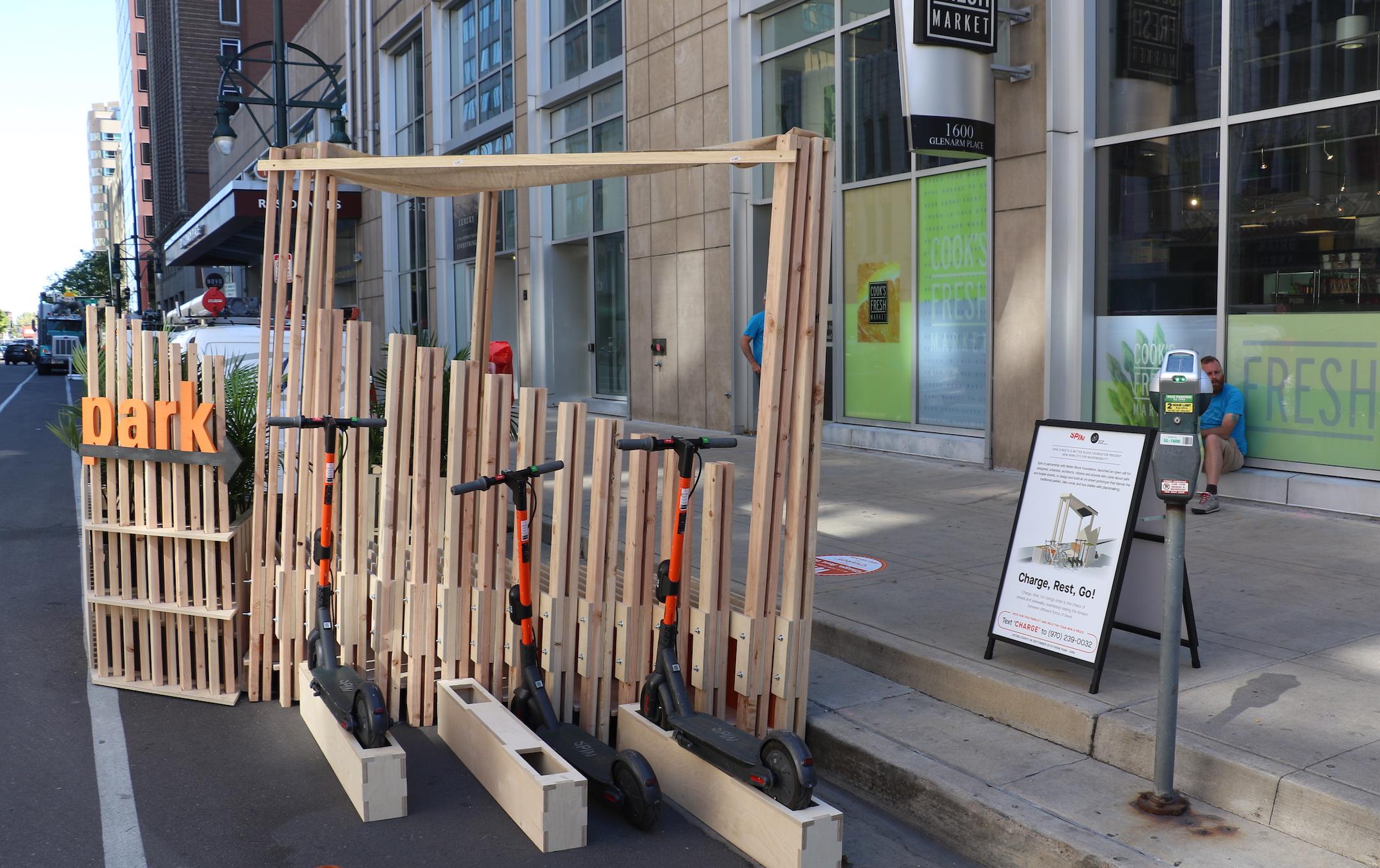
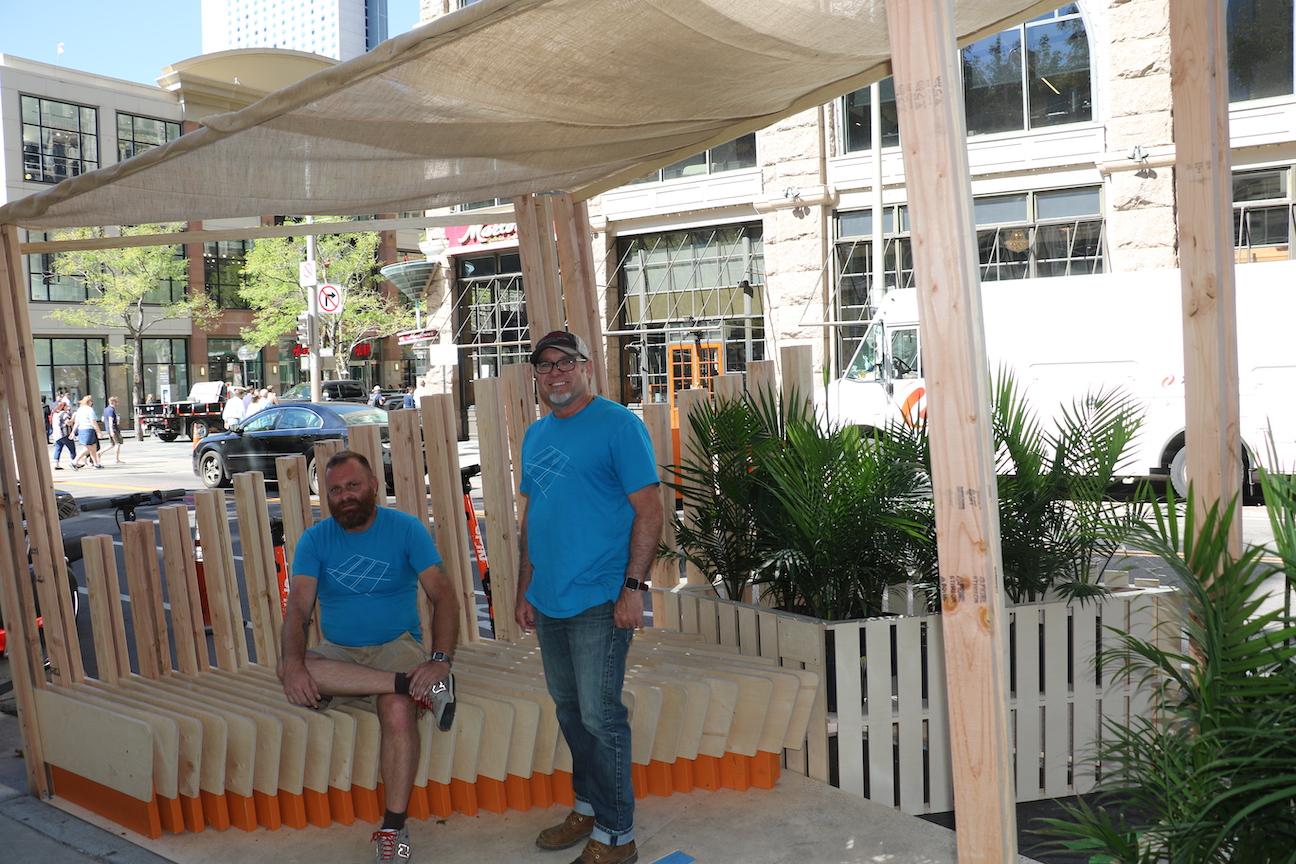
"Our idea is that it's a temporary parklet, but the idea is that it may be a prototype for the future as a way to manage scooters and e-bikes and things like that, almost like a bus stop-type situation," Spraggins said, adding that the final product would have charging stations for electric scooters, bikes and phones.
Denver has no bureaucratic mechanism to make parklets permanent. San Francisco and Los Angeles do, and that's something Denver is looking into mimicking so that publicly owned space can be used by more members of the public, according to Public Works' McCann. But so far restaurants and other businesses have expressed the most interest.
"It's definitely intended to be for public use. And so, so far the interest we're receiving, it's more for privatized use," McCann said. And so we're trying to figure out how to allow for that kind of use, but still keep it open to the public."
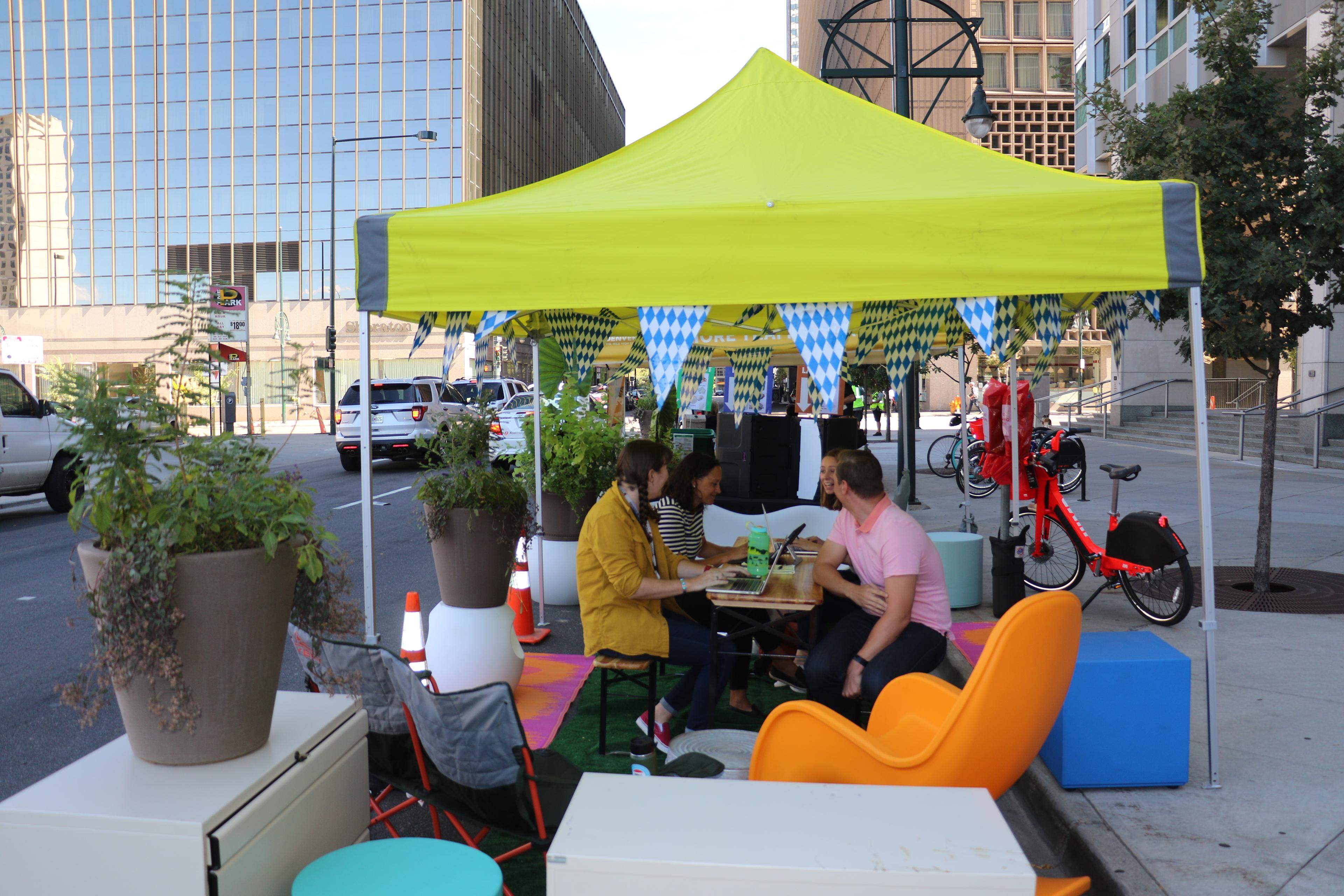
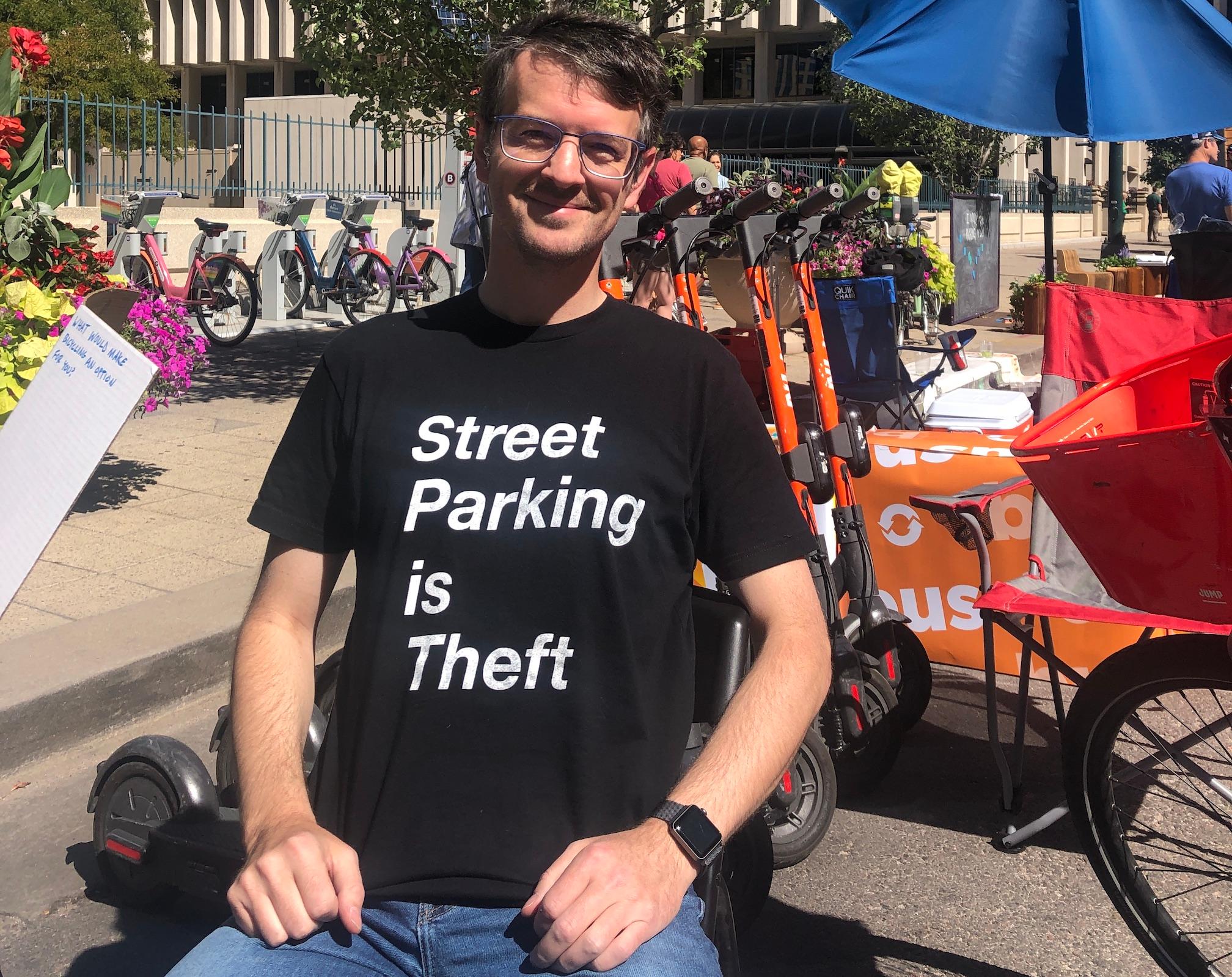
Different parklets used different gauges to measure success Friday.
An hour and a half after opening, WalkDenver program coordinator Jessica Vargas said 20 or so people stopped by to lounge, work and converse at their parklet outside the Milk Market. John Riecke of advocacy group Denver Bicycle Lobby noticed that cars were driving slower on Curtis Street alongside six former parking spaces and current parklets.
"If it was empty cars parked right here, you'd do 35 miles an hour, but they see people right on the edge of the street and they naturally slow down," he said. "Four chairs and a table. That's all it took. Even with the very bare minimum of infrastructure, we're still getting better use out of this space."
The Spin-sponsored parklets will be around all weekend, but the rest will fold at the end of the day. Public Works says they could make some parklets permanent as early as next summer.

